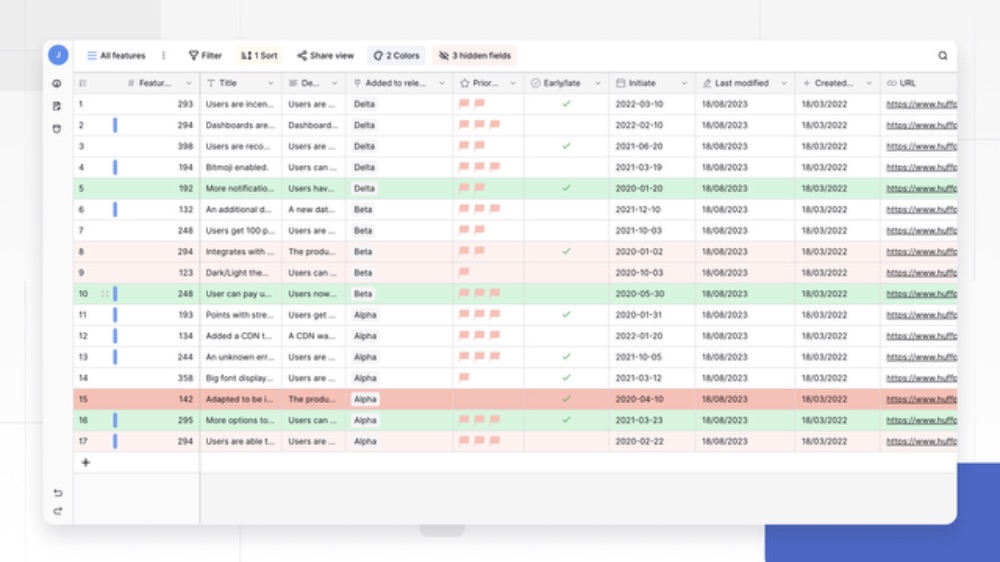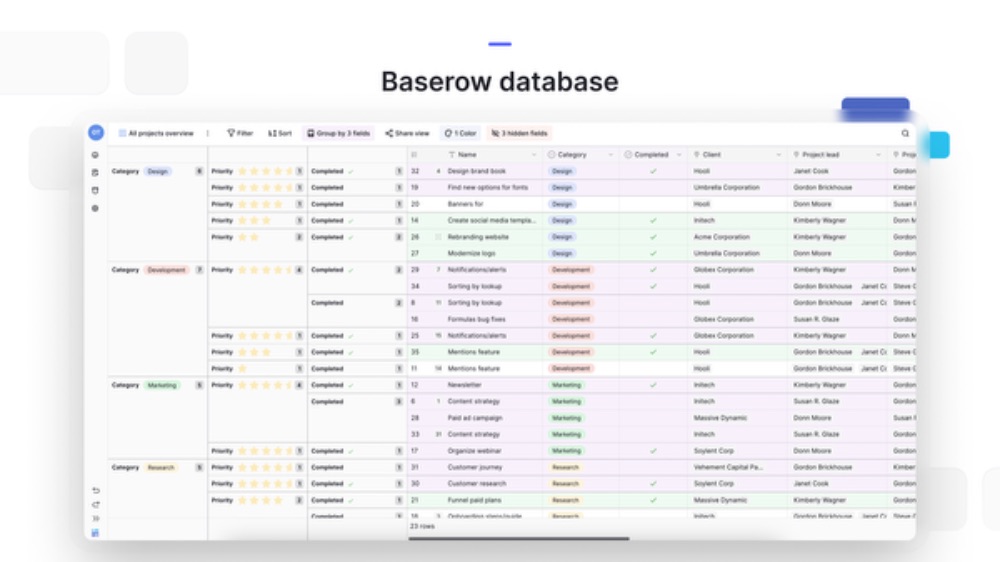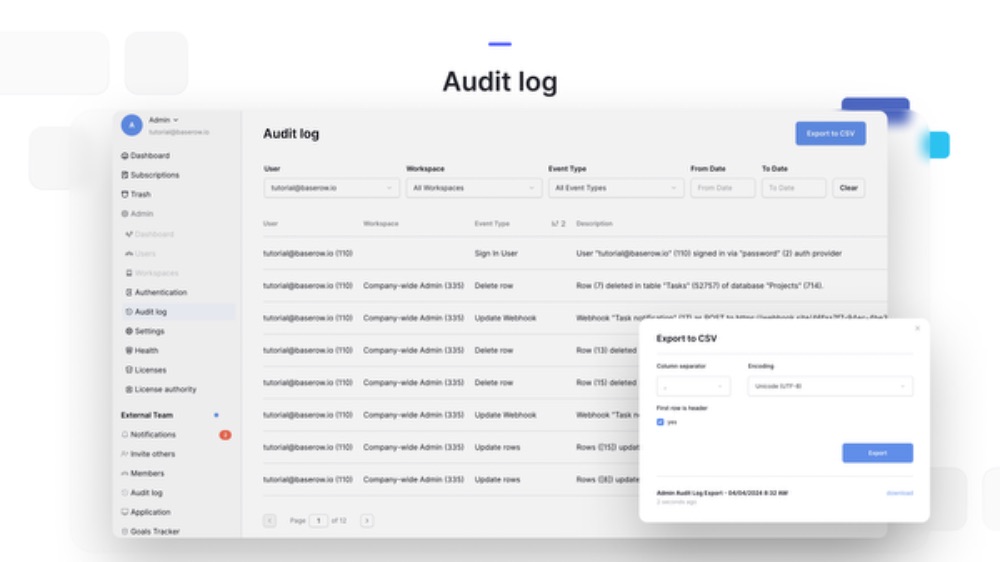Baserow vs. Airtable: Why Baserow Might Be Your New Favorite No-Code Database Tool
For someone who used to think coding was a mystical language spoken by tech wizards, the idea of building functional apps without writing a single line was exhilarating. But with so many no-code platforms out there, choosing the right one can be overwhelming. But today, I want to focus on a head-to-head battle in the no-code database arena: Baserow vs. Airtable.
Now, Airtable's a heavyweight, there's no denying it. It's been around for a while and has a loyal following. But for those of you just starting your no-code journey, or maybe even Airtable veterans looking for a fresh perspective, let me share why Baserow might just become your new favorite no-code database tool.
Here's a breakdown based on my experience with both, focusing on factors that might be important to someone just starting out:
Built with Simplicity in Mind:
Both platforms offer a hybrid spreadsheet/database approach: creating databases, adding different field types, collaborating with others.
Baserow takes a minimalist approach. The clean, intuitive interface makes it a breeze to learn and navigate, even for complete no-code newbies. You won't be spending hours deciphering cryptic icons or wondering where that essential feature is hiding.

Community
A supportive community is vital for any no-code newbie. Both Airtable and Baserow have active communities, but Baserow's feels a touch more intimate. It's easier to get your questions answered and feel like you're part of a no-code family.
Open Source Advantage:
As a huge advocate for transparency and community-driven development, I absolutely love that Baserow is open-source. This might not mean much to everyone, but for those who appreciate transparency and the potential for community contributions, Baserow being open-source is a big plus.
For no-code newbies, this translates to a few key benefits:
- Security: Open-source software is generally considered more secure because the code is constantly being reviewed by a community of developers. This can be a major selling point, especially if you're dealing with sensitive data.
- Customization: Being open-source means Baserow is infinitely customizable. If there's a feature you need that's not built-in, there's a good chance you (or a developer you know) can create it yourself.
This means you have the peace of mind of knowing exactly what goes into the platform, and the potential to contribute to its future development. Plus, the open-source nature fosters a vibrant community of developers and users who are always happy to help and share their expertise.

The Cost Factor:
Listen, we all love a good deal. While Airtable's free plan is decent, it has limitations that can quickly become a pain point as your projects grow.
Baserow, on the other hand, offers a generous free plan with ample features to get you started. And even their paid plans are significantly more affordable than Airtable's comparable offerings.
Power Under the Hood:
Beyond Baserow's sleek design, it packs a serious punch when it comes to functionality. You get all the database essentials like a variety of field types (text, numbers, dates, files, you name it!), robust filtering and sorting options, and powerful formulas that let you automate tasks and manipulate data with ease.
Plus, Baserow keeps adding new features at a breakneck pace, so you know you're always working with the latest and greatest.

Now, the Disclaimer:
(As some of you might have guessed by now) I may be a bit biased towards Baserow! But in all seriousness, I genuinely believe Baserow offers a fantastic no-code database experience, especially for those new to the world of building without code.
Whether you're a complete no-code newbie or a seasoned pro, Baserow offers a user-friendly experience that doesn't compromise on power. The intuitive interface, robust features, and open-source nature make it a compelling option for anyone looking to build and manage databases without getting bogged down in technical complexities.
Making the Switch:
If you're curious about Baserow but hesitant to leave your existing Airtable setup behind, Baserow offers seamless import options, allowing you to easily migrate your data from Airtable. This makes it a breeze to try Baserow without losing any valuable information.
The Final Word:
Honestly, there's no single "best" platform. It really depends on your specific needs and preferences.
For the curious explorer who wants to unlock the full potential of no-code, I strongly recommend giving Baserow a try. Baserow offers more customization options, powerful features, and a supportive community. Plus, the free plan is fantastic for experimentation.
Ultimately, the best way to decide is to try both! You might just discover your new database haven!
ABOUT ME
I'm Juliet Edjere, a no-code professional focused on automation, product development, and building scalable solutions with no coding knowledge.
Learn from practical examples and explore the possibilities of no-code, AI and automation. We'll navigate the tools, platforms, and strategies, one article at a time!
Visit my website → built with Carrd